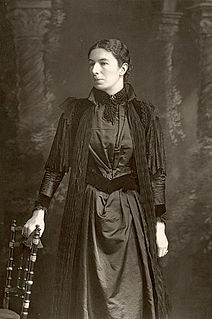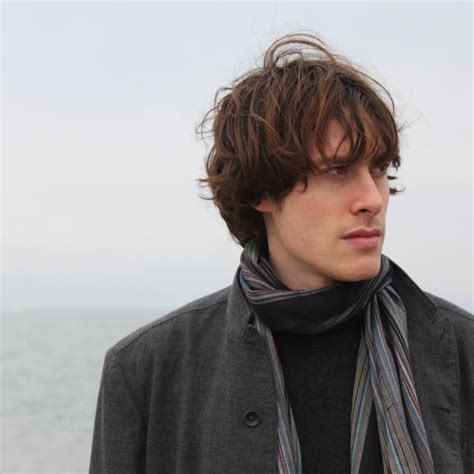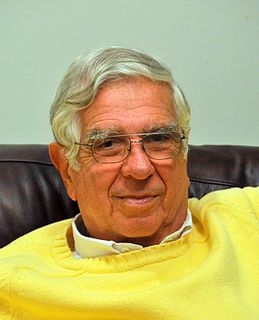A Quote by Mary Augusta Ward
The thoughts and opinions of one human being, if they are sincere, must always have an interest for some other human beings. The world is there to think about; and if we have lived, or are living, with any sort of energy, we must have thought about it, and about ourselves in relation to it - thought 'furiously' often. And it is out of the many 'thinkings' of many folk, strong or weak, dull or far-ranging, that thought itself grows.
Related Quotes
Sartre is one example of someone who does just this. Every text is, after all, a human document and whatever Kierkegaard thought about God was clearly a matter of human thought that can, in principle, be retrieved and interpreted by other human beings. A phenomenological approach to religion must, it seems to me, adopt the old adage: nothing human is alien to me.
The usual method of creation for most human beings is a three-step process involving thought, word, and deed or action. First comes thought; the formative idea; the initial concept. Then comes the word. Most thoughts ultimately form themselves into words, which are often then written or spoken. This gives added energy to the thought, pushing it out into the world, where it can be noticed by others. Finally, in some cases words are put into action, and you have what you call a result; a physical world manifestation of what all started with a thought.
The best books, they don’t talk about things you never thought about before. They talk about things you’d always thought about, but you didn’t think anyone else had thought about. You read them, and suddenly you’re a little bit less alone in the world. You’re part of this cosmic community of people who’ve thought about this thing, whatever it happens to be.
I've always thought of the process of creating ballets as being this kind of team effort. It's not like being a painter, where you have your paint, and you have canvas, and you just go at it. I'm working with these living, breathing, functioning human beings, and they have their own thoughts and ideas about what works well movement-wise.
One must not consider a language as a product dead, and formed but once; it is an animate being, and ever creative. Human thought elaborates itself with the progress of intelligence; and of this thought language is a manifestation. An idiom cannot therefore remain stationary; it walks, it develops, it grows up, it fortifies itself, it becomes old, and it reaches decrepitude.
At different points, I applied to graduate school. I got into medical school. I thought about being a writer. I thought about being an investment banker. I just didn't know what I wanted to do with myself. I think the thing that best suits me about being a C.E.O. is that you get to exercise many different talents and wear many different hats.
In knowledge of human affairs, we should never allow our minds to be enslaved by others by subjecting ourselves to their whims. We must maintain freedom of thought, and never accept anything of purely human authority into our heads. When we are presented with a diversity of opinions, we must choose, if we can; if we cannot, we must remain in doubt.
No ideology can help to create a new world or a new mind or a new human being -- because ideological orientation itself is the root cause of all the conflicts and all the miseries. Thought creates boundaries, thought creates divisions and thought creates prejudices; thought itself cannot bridge them. That's why all ideologies fail. Now man must learn to live without ideologies religious, political or otherwise. When the mind is not tethered to any ideology, it is free to move to new understandings. And in that freedom flowers all that is good and all that is beautiful.
History leaves no doubt that among of the most regrettable crimes committed by human beings have been committed by those human beings who thought of themselves as civilized. What, we must ask, does our civilization possess that is worth defending? One thing worth defending, I suggest, is the imperative to imagine the lives of beings who are not ourselves and are not like ourselves: animals, plants, gods, spirits, people of other countries, other races, people of the other sex, places and enemies.
Certainly, Occupy Wall Street protesters have different ideas about the movement's mission. Many of the marchers I met even disagreed on the purpose of their trek - some thought it was about getting to Washington to protest the 'supercommittee'; others thought it was about visiting other Occupations.
The research reported on in our book "A=B", has moved a whole active field of mathematics from the province of human thought to the realm of computer-fodder. It is quite exciting to think about what other fields of pure mathematics, hitherto thought to be reserved to human intelligence, might be moved to that realm next. The goal is to put ourselves out of business completely, and the work is well underway.
In the Orient the ultimate divine mystery is sought beyond all human categories of thought and feeling, beyond names and forms, and absolutely beyond any such concept as of a merciful or wrathful personality, chooser of one people over another, comforter of folk who pray, and destroyer of those who do not. Such anthropomorphic attributions of human sentiments and thoughts to a mystery beyond thought is-from the point of view of Indian thought-a style of religion for children.
Dropping of the atomic bomb was the main subject of conversation for many years and so people had very strong feelings about it on both sides and people who thought it was the greatest thing they'd ever done and people who thought it was just an unpleasant job and people who thought they should have never done it at all, so there were opinions of all kinds.
Semantics is about the relation of words to thoughts, but it also about the relation of words to other human concerns. Semantics is about the relation of words to reality - the way that speakers commit themselves to a shared understanding of the truth, and the way their thoughts are anchored to things and situations in the world.







































